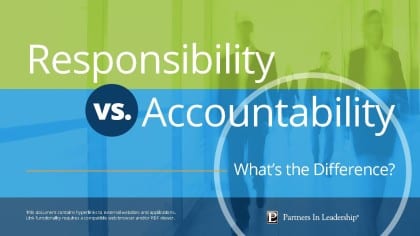The bottom line is that we need to see results. As supervisors, managers, and leaders in organizations, we have a responsibility to drive the success of our companies, so we become creative in how we can achieve that goal. Our strategy may include new action plans, resource reallocation, perhaps even calling a meeting to rally the troops, all in an effort to move everyone in the same direction—the right direction—to achieve the goal.
Unfortunately, at times it can end up feeling a bit like herding cats.
In response, we renew our energy with new action plans, policies, and procedures to counter the efforts that failed last time—and the cycle continues. Undoubtedly, we hear really good excuses for not achieving the results that we had set: “I didn’t know that was my goal,” “Wait, that’s not my job,” or “I thought I was chasing a different number.” Likely, we’ve created some good ones ourselves: the economy, the competition, the regulations…the list grows. As the excuses continue, so does the frustration of our leaders and of those in our employ.
So how can accountability be the answer to all of our problems?
Accountability as it is currently perceived cannot. Typically, accountability is the hammer that drops when someone falls short. It’s punitive. It happens after the fact. But when we shift our definition of accountability from being a punitive response that happens to people to being a personal choice that everyone makes every day in order to overcome circumstances and achieve results, then the game changes.
If every individual in the organization makes a personal choice to own this positive form of accountability, then everyone’s activity will drive the results in a positive, principled way. The whole company will move in the same direction, in the right direction—and there will be alignment. This takes the pressure off leaders to drive action each day, and it produces higher levels of engagement and empowerment throughout the organization. And in the process, it creates a company filled with people who understand what it means to deliver on the results and how they personally contribute to the bigger picture.
When you have individual accountability like this, it’s like hearing the music of a single instrument being played by a great musician. However, when you have an organization of these musicians playing together, you have a superb orchestra playing a beautiful, powerful symphony—harmoniously and with purpose. In the same way, when an organization of accountable people work together, a Culture of Accountability is created, a culture where people think and act in a manner that delivers the desired results, overcoming obstacles at every turn and with complete alignment.
To begin learning how you can begin instilling positive accountability in your people to orchestrate results and start creating a Culture of Accountability at your organization, explore our Responsibility vs. Accountability eBook below. Get your people to start being accountable—the right way!
 Responsibility vs. Accountability eBook
Responsibility vs. Accountability eBook
Read our eBook, Responsibility vs. Accountability, to learn more about the subtle, but crucial, differences between responsibility and accountability.
